Doing business
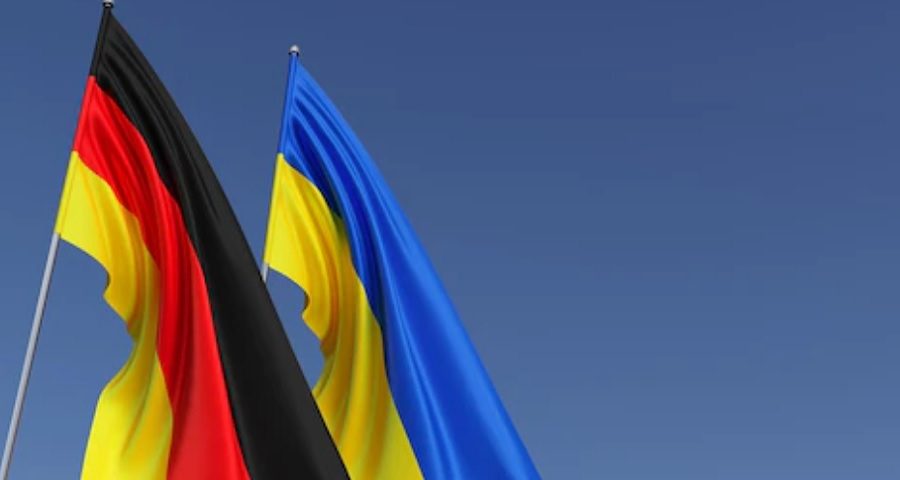
Germany remains steadfast in its commitment to the independence, sovereignty and territorial integrity of Ukraine. It highly commends the determination and courage of the Ukrainian people and their Armed Forces in defending themselves against russian aggression and securing a free and democratic future for Ukraine. The Federal Republic of Germany will continue to provide political, financial, humanitarian and military support to Ukraine as long as it is needed – individually and through international cooperation within the European Union, the G7, NATO, the UN and other formats.
Since the beginning of the full-scale war, Germany’s financial assistance to Ukraine has totalled €22 billion. In 2023, the total funding for military assistance to Ukraine from the German government will reach €5.4 billion.
Germany has made an unprecedented, substantial and powerful contribution to military assistance to Ukraine by donating or providing a variety of weapons systems, including valuable and effective air defence missile and artillery systems, Leopard 1 and 2 main battle tanks, armoured infantry fighting vehicles, artillery systems, radar and counter-radar systems, and Marder infantry fighting vehicles, armoured fighting vehicles, artillery systems, air surveillance radars and counter-battery radars, as well as tonnes of ammunition for tanks, artillery, air defence and firearms, and many other weapons and equipment.
On August 9, Germany handed over two more Patriot air defence systems to Ukraine. The government noted that the supplies are made from industry stocks financed by German security capacity building funds.
Berlin and Warsaw have agreed to open a repair centre for German vehicles in Poland that were damaged during hostilities in Ukraine. On July 23, the centre began operations in Gliwice, Poland, at the Bumar-Labenda plant.
The German government will present to the Bundestag a plan for military support for Ukraine, which provides for the annual transfer of €5 billion in weapons to Kyiv by 2027.
Besides military aid, Germany provides Ukraine with comprehensive civilian support, including financial and humanitarian aid, as well as emergency aid, including support for the reconstruction of damaged civilian infrastructure, roads and bridges, and the repair and restoration of damaged energy and water infrastructure. Germany has provided over €1.4 billion of financial assistance to Ukraine since the beginning of the war, much of which has been in the form of grants. Germany is a leader in aid among the European Union countries.
German society has taken the tragedy of Ukraine to heart and provided Ukrainians with enormous support. In 2022, Germans donated just over €1 billion in emergency aid to those affected by the war in Ukraine. This is an absolute record for donations in response to a single emergency in the country’s history. This figure does not include donations of material items, volunteer assistance and personal help from Germans to Ukrainians, which are not quantified.
In 2023, Germany will provide an additional €381 million in humanitarian aid to Ukraine, including generators, food and tents for people who have been displaced or lost their houses. Germany has already provided €40 million in humanitarian aid to help people get through the winter and an additional €5 million for the reconstruction of Ukrainian schools together with UNDP.
In 2022, the administration of the State of Brandenburg and the Free State of Saxony (Germany) sent €200,000 humanitarian aid to Dnipropetrovsk region, consisting of medical goods and medicines, food and camping equipment.
In July 2012, the Ukrainian Social Investment Fund, with financial support provided by the German Government through KFW Development Bank, reconstructed a medical institution in Dnipropetrovsk Oblast and donated medical devices (personal protective equipment, digital stethoscope, 12-channel cardiograph, defibrillator, patient monitor, 4-channel coagulometer, centrifuge, etc.)
Under the Memorandum of Cooperation with the city of Cologne, Germany sent humanitarian aid to the region, as well as an ambulance equipped with everything necessary to rescue Ukrainian soldiers, petrol power generators, personal care products and food.
Overall, in 2022, the German government, private entrepreneurs and charitable organisations provided more than 200 tonnes of humanitarian aid, including medicines, multifunctional surgical beds, medical mattresses, food kits, clothing and hygiene products, as well as 370 generators, 5 large buses, ambulances and ammunition for rescuers..
In 2023, the The German Agency for International Cooperation (GIZ) sent 12 mobile autonomous solar stations to the region for Administrative Service Centres and medical institutions. 6 museums in the region received humanitarian support: generators, dehumidifiers, packaging materials, flashlights, power banks from the Art Support Centre of Ukraine and the German Ministry of Culture.
Before the full-scale invasion of russia, Dnipro had one of the country’s largest animal care centres. Therefore, German partners provided special vehicles to maintain such work during the war. They also provided a fire truck. Both vehicles are equipped with technical gear, chainsaws for concrete, fire ammunition, a generator, etc.
The development of mutually beneficial trade and economic cooperation also remains an important priority for both countries. Analysis of the export and import operations of Dnipropetrovsk region with Germany demonstrates a high level of partnership, as the country is an important commercial partner of the region.
According to the results of 2022, the volume of goods exports from Dnipropetrovsk region totalled $180.1 million. Goods that are in demand among German consumers are ferrous metals and products thereof, seeds and fruits of oilseeds, parts for railway locomotives, furniture, etc.
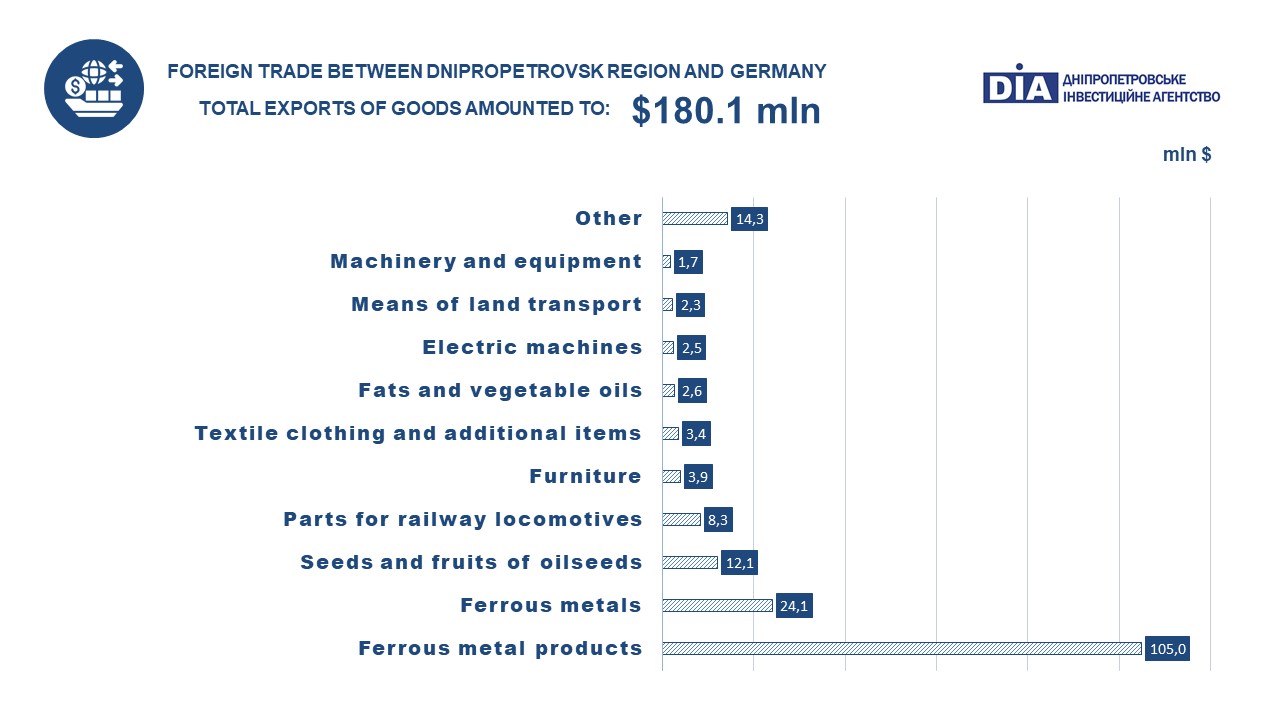
Export operations were carried out by 212 companies from Dnipropetrovsk region. The main exporting companies are metallurgical, machine-building, agricultural and processing enterprises.
TOP-5 exporters (ranked by volume of exported products):
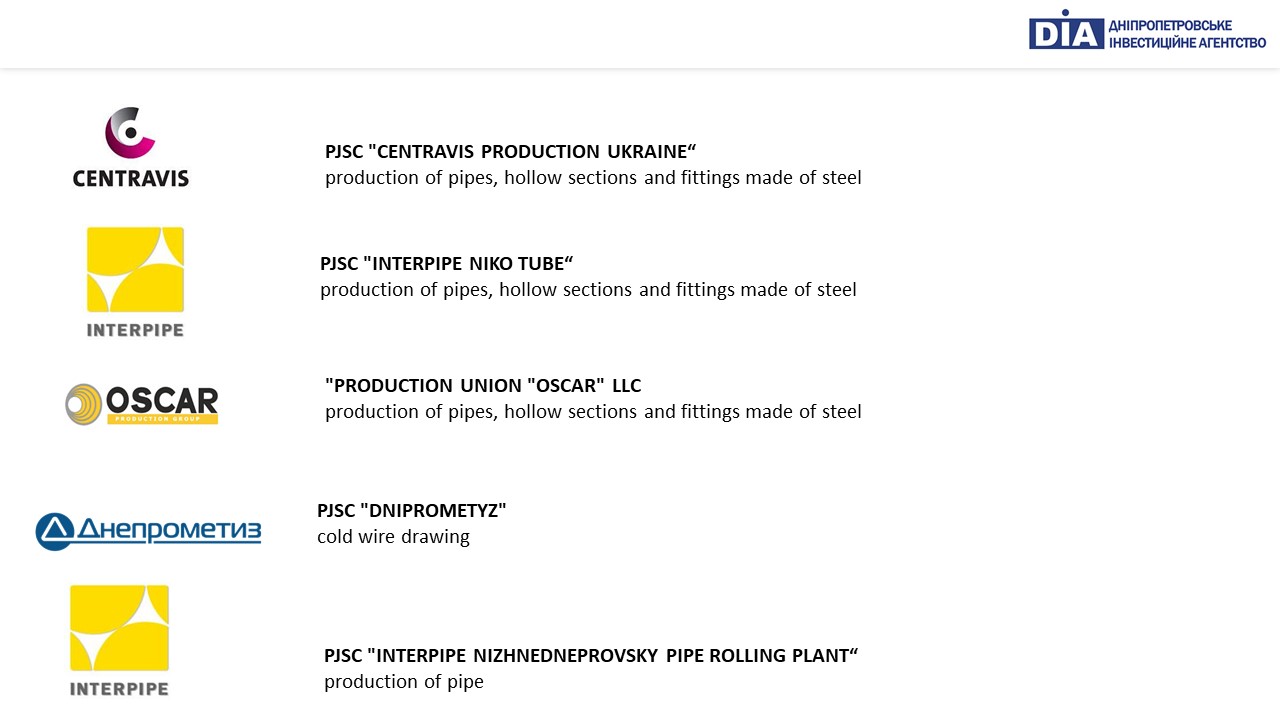
Imports of goods from Germany to Dnipropetrovsk region totalled $257.8 million, which decreased by 36% compared to 2021. The region traditionally imported pharmaceuticals, machinery and equipment, means of land transport, plastics and polymeric materials, etc.
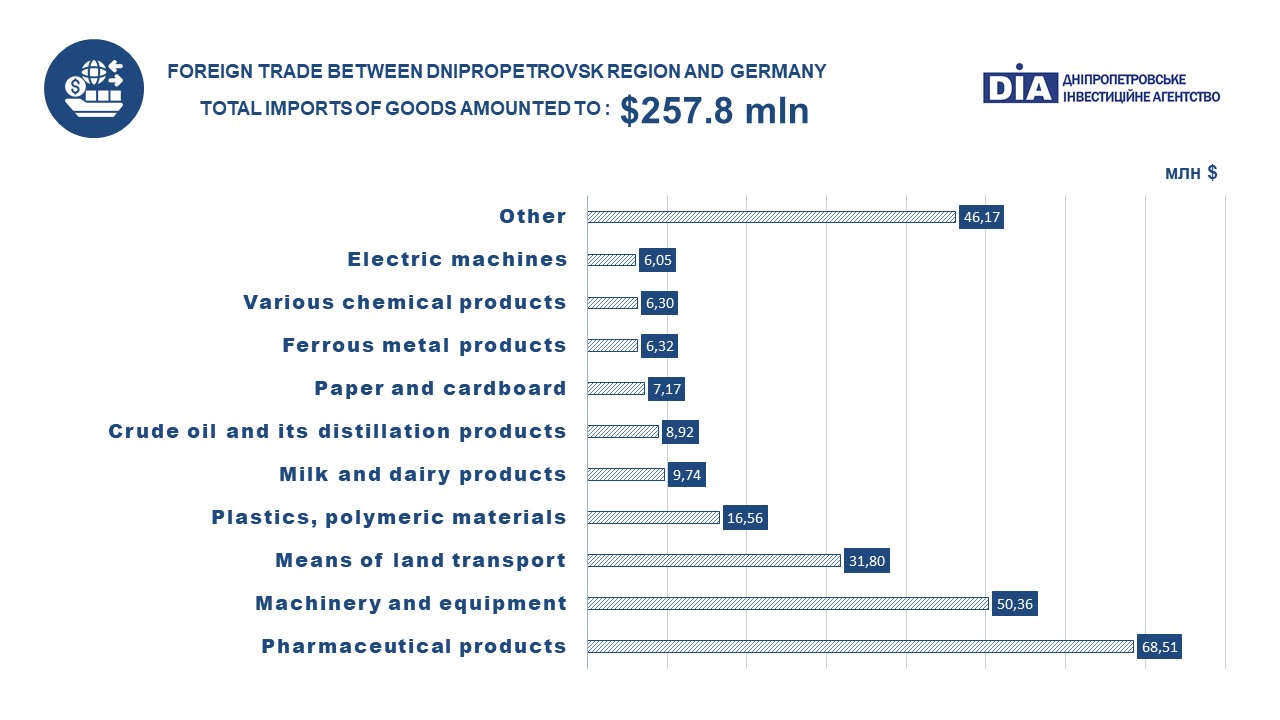
Import operations were carried out by 552 importers.
TOP-5 importers (ranked by volume of imported products):
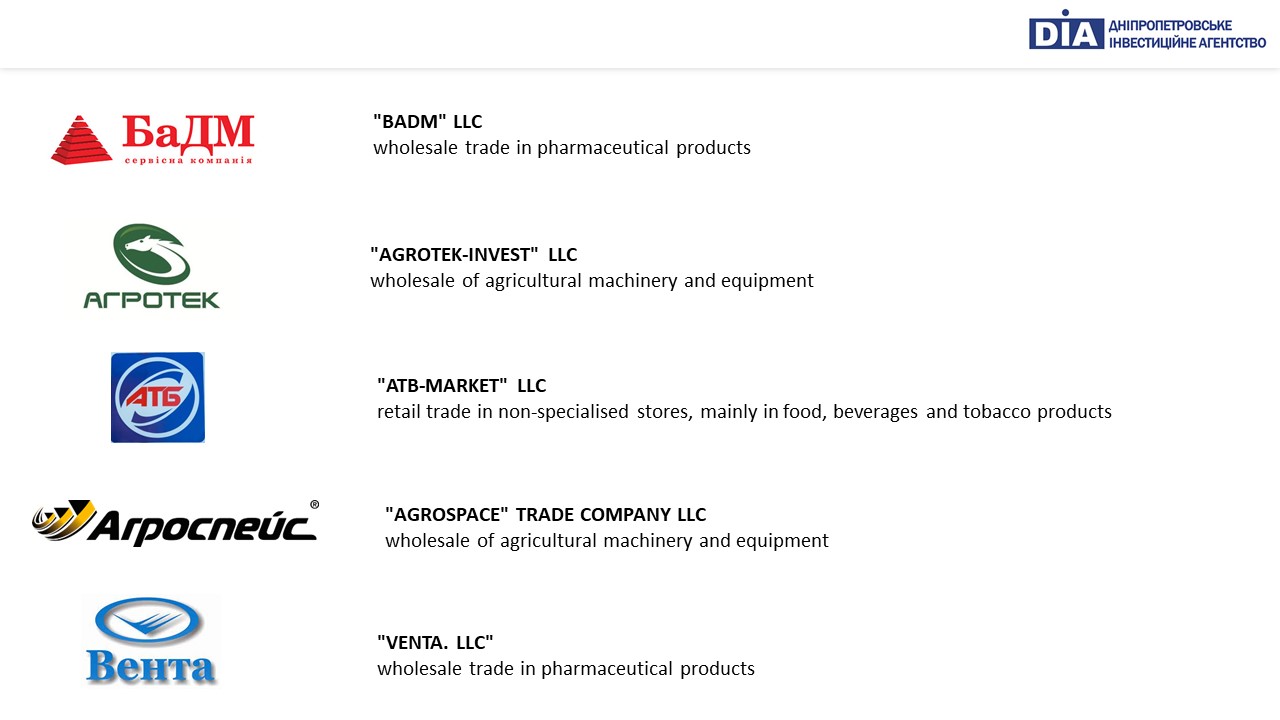
Import operations were mainly carried out by pharmaceutical, trade, machine-building and processing companies.
Source: information for the article was taken from open online sources